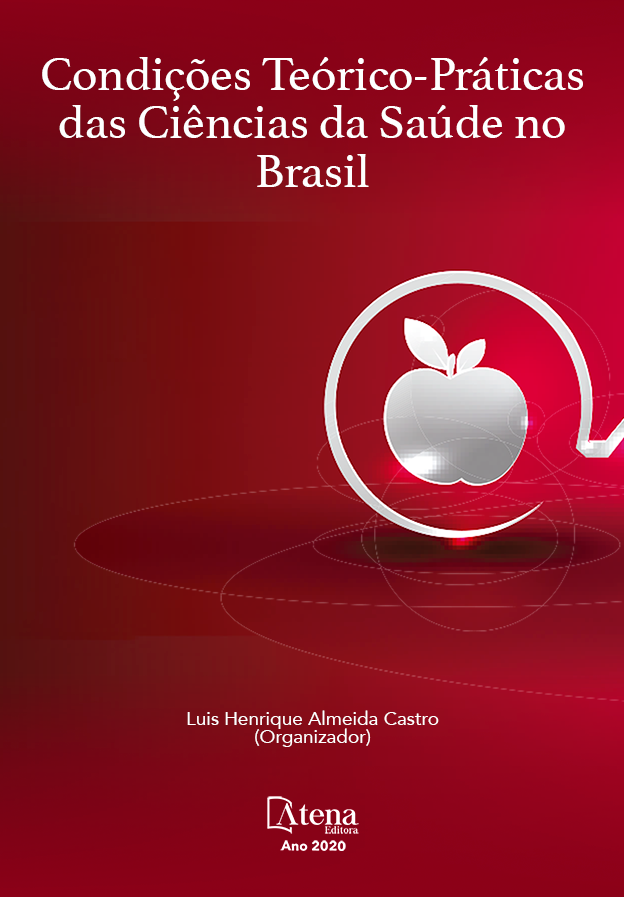
ANÁLISE MICROBIOLOGICA DE ÁGUA EM CRECHES/ABRIGO DE ALTA FLORESTA -MT
A água é recurso natural essencial à vida dos seres humanos, ligado diretamente a saúde dos mesmos. O público infantil apresenta maior fragilidade por apresentar sistema imunológico ainda em formação e, não possuírem conhecimento sobre higienização, que evitaria contrair certos tipos de doenças, ligado primordialmente às bactérias. Desse modo, este trabalho teve como objetivo verificar a qualidade microbiológica da água oferecida as crianças de unidades escolares (creches) no município de Alta Floresta- MT. O estudo foi realizado com as creches públicas e um abrigo infantil do município, totalizando 11 pontos de coleta de água, dos quais foram retiradas duas amostras de água das áreas de maior utilização, a cozinha e o bebedouro, após realizar a coleta foi aplicado um questionário estruturado composto de cinco questões aos coordenadores/diretores. As análises microbiológicas das amostras foram realizadas no Laboratório de Microbiologia e Fitopatologia da Universidade do Estado de Mato Grosso - UNEMAT, Alta Floresta - MT. Em todas as instituições participantes, inicialmente constatou-se a presença de coliformes, contudo ao prosseguir com a análise, não foram identificados coliformes totais ou fecais nas águas, o que caracteriza a água própria para consumo. Além disso, segundo as respostas do questionário, a limpeza dos reservatórios e as trocas de filtros são realizadas semestralmente e a procedência da água utilizada é de fontes que recebem tratamento, o que pode justificar a qualidade da água oferecida as crianças. Conclui-se que a água ofertada nas creches e no abrigo municipal de Alta Floresta é de boa qualidade, seguindo os padrões de potabilidade exigidos pelo Ministério da Saúde.
ANÁLISE MICROBIOLOGICA DE ÁGUA EM CRECHES/ABRIGO DE ALTA FLORESTA -MT
-
DOI: 10.22533/at.ed.4232004124
-
Palavras-chave: Consumo; potabilidade; crianças.
-
Keywords: Consumption; potability; children.
-
Abstract:
Water is an essential natural resource for human life, directly linked to their health. Children are more fragile because they have an immune system that is still being formed and do not have knowledge about hygiene, which would avoid contracting certain types of diseases, primarily linked to bacteria. Thus, this study aimed to verify the microbiological quality of the water offered to children in school units (daycare centers) in the municipality of Alta Floresta - MT. The study was carried out with public daycare centers and a children's shelter in the municipality, totaling 11 water collection points, from which two water samples were taken from the areas of greatest use, the kitchen and the drinking fountain. structured questionnaire composed of five questions to coordinators / directors. The microbiological analyzes of the samples were carried out at the Microbiology and Phytopathology Laboratory of the State University of Mato Grosso - UNEMAT, Alta Floresta - MT. In all participating institutions, the presence of coliforms was initially found, however when proceeding with the analysis, total or faecal coliforms were not identified in the waters, which characterizes the water suitable for consumption. In addition, according to the questionnaire responses, cleaning of reservoirs and filter changes are carried out every six months and the source of the water used is from sources that receive treatment, which may justify the quality of the water offered to children. It is concluded that the water offered in day care centers and in the municipal shelter of Alta Floresta is of good quality, following the potability standards required by the Ministry of Health.
-
Número de páginas: 9
- ANA PAULA ROVEDA
- Renan Colavite dos Santos
- Crislei Ferreira Alves
- Bruna Francielly Gama
- Luiz Fernando Gibbert
- LUANA SOUZA SILVA
- WALMOR MOYA PERES
- GRACE QUEIROZ DAVID
- TAINARA RAFAELY DE MEDEIROS
- GISEUDO APARECIDO DE PAIVS
- ADRIANA MATHEUS DA COSTA SORATO
- Ana Paula Rodrigues da Silva


